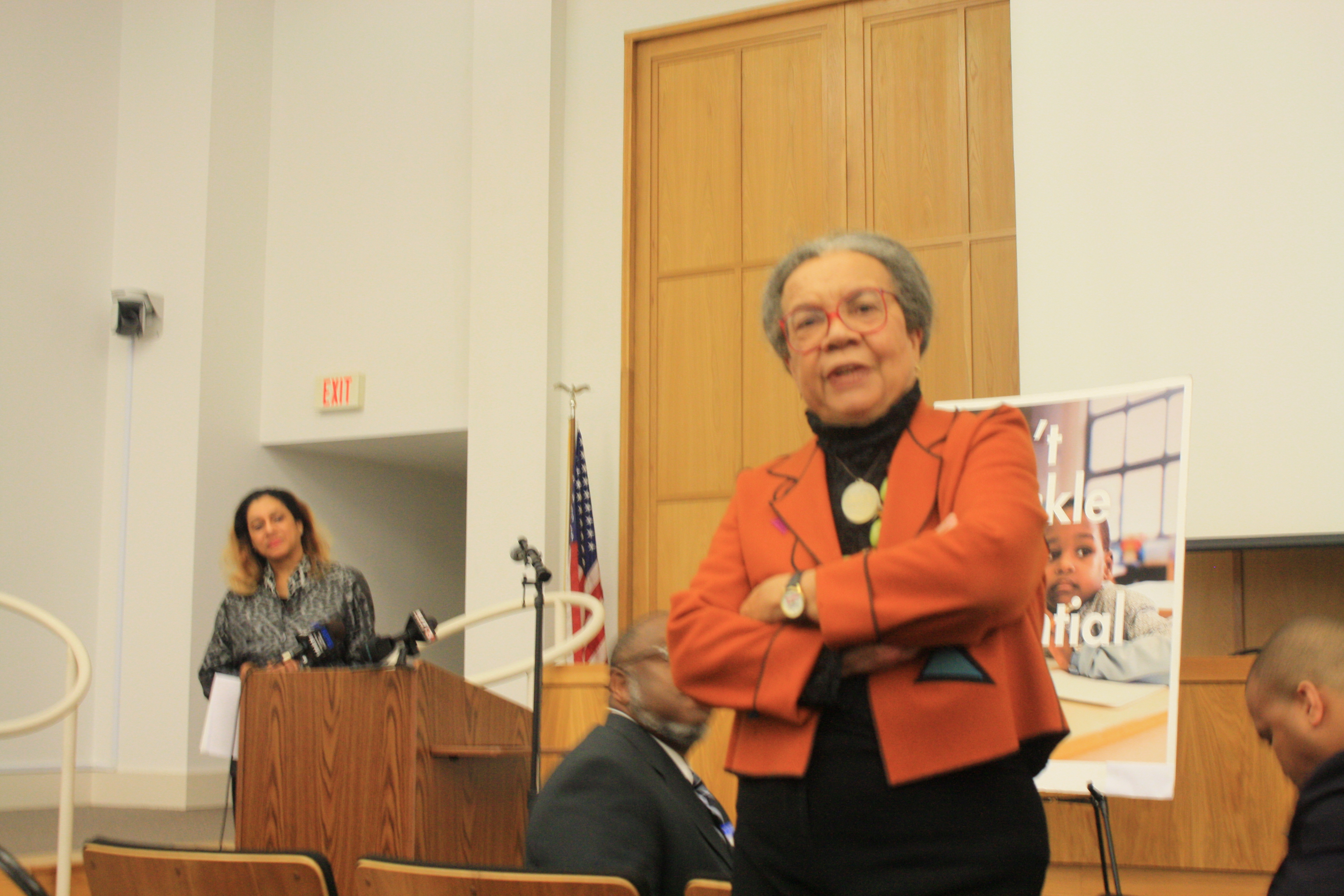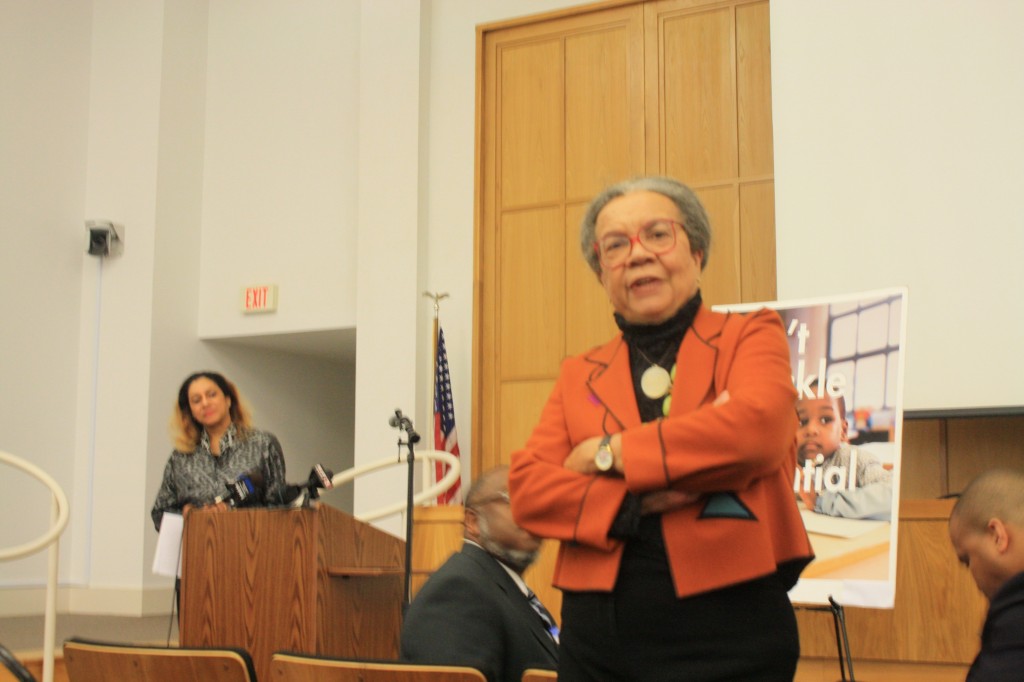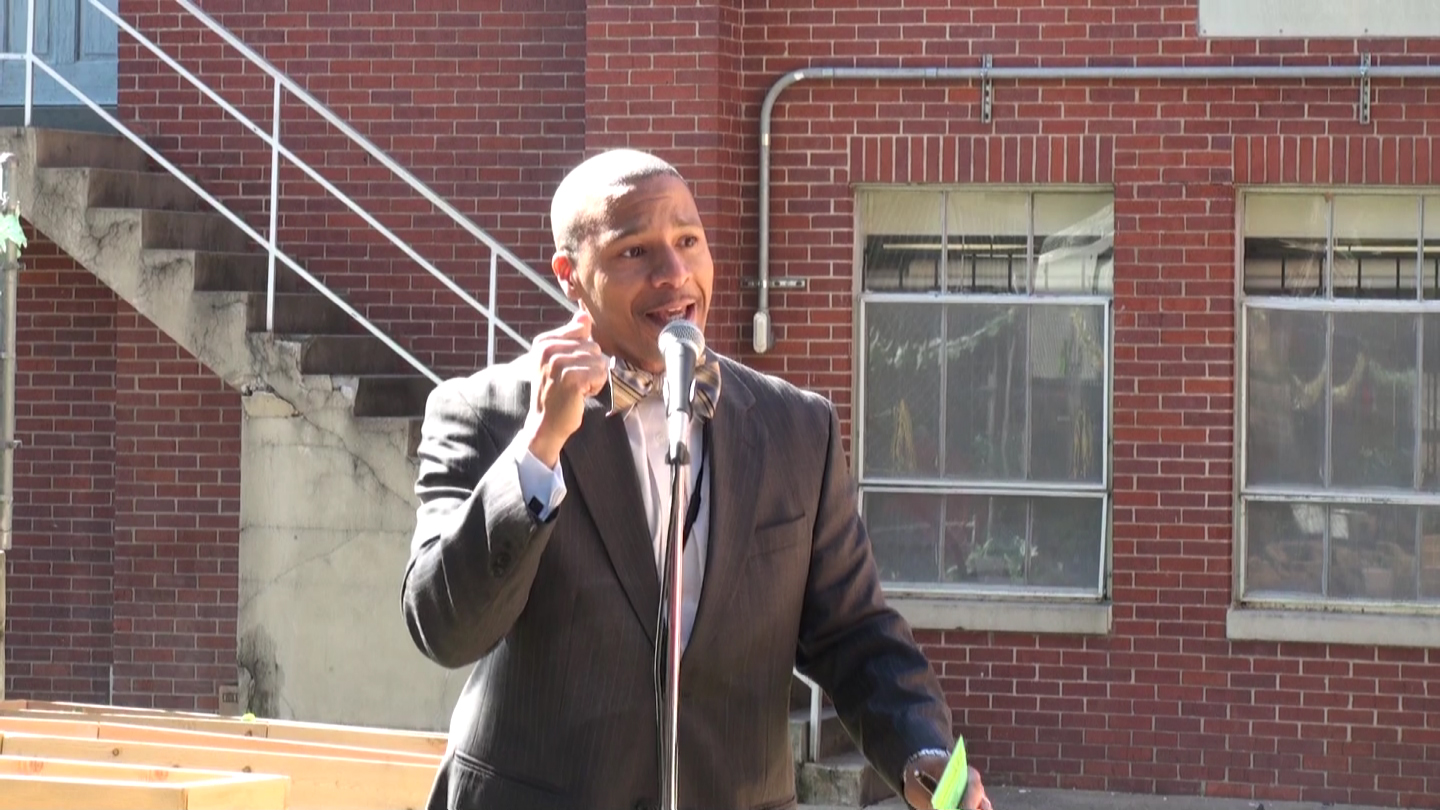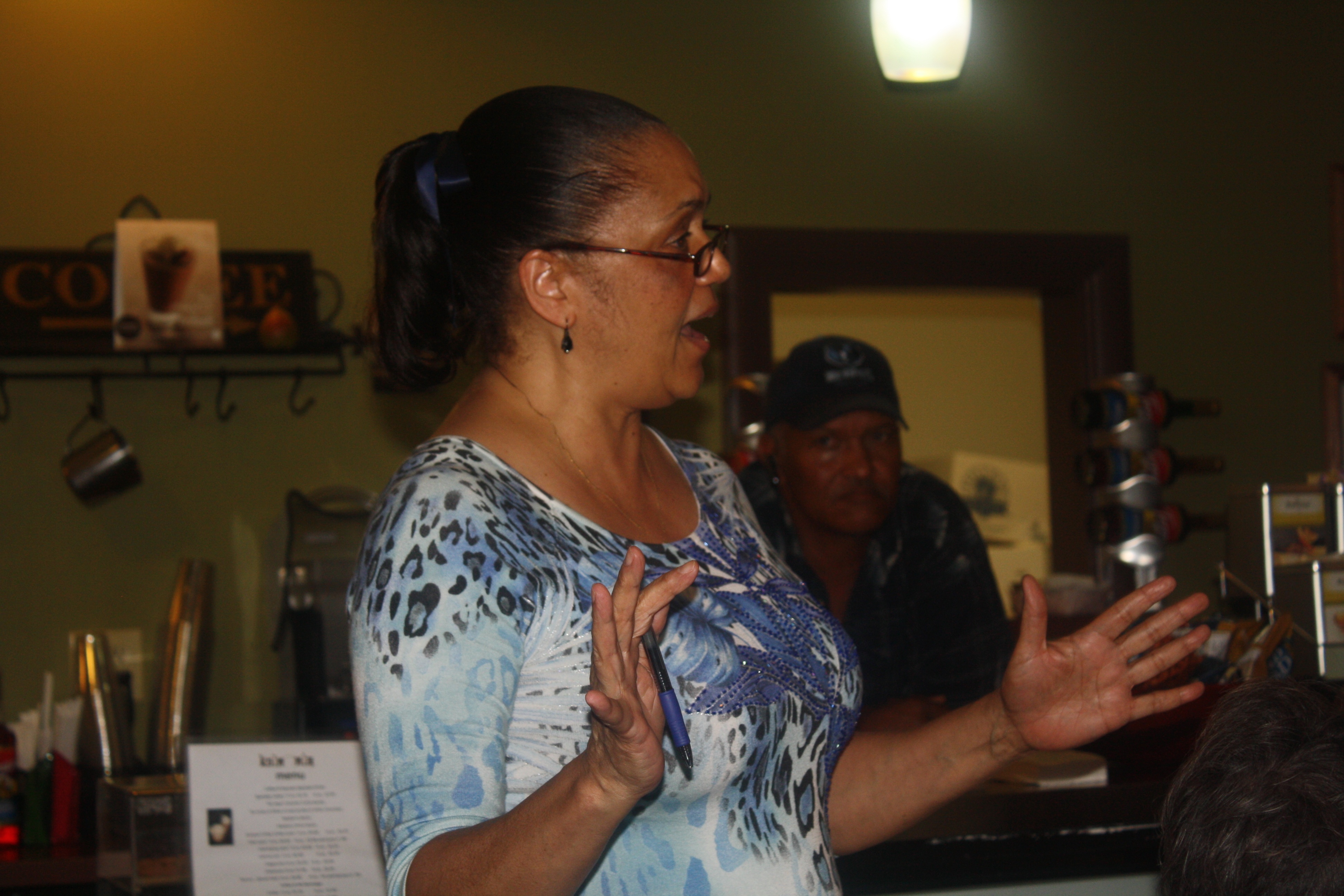
By Ayesha K. Mustafaa
Editor

A call to action plan toward repealing “zero tolerance school discipline policies” was issued by Marian Wright Edelman, founder and president of the Children’s Defense Fund (CDF), at a press conference Friday, Feb. 8, held at the Central High School Auditorium in Jackson.
Edelman joined the Southern Poverty Law Center, the PERICO Institute for Youth Development and Engagement and CDF’s Southern Regional Office.
The activists called for an end to school policies they termed a “key feeder into the cradle to prison pipeline and deepening the drop out rate in Mississippi.”
According to Oleta Fitzgerald, director of CDF’s Southern Regional Office, “There is an increased use of suspension and expulsion for students who do not pose a threat to school safety.”
By using public records, the Children’s Defense Fund’s Southern Regional Office and Southern Rural Black Women’s Initiative worked with the PERICO Institute to develop a data-driven profile of the disproportionate impact zero tolerance school discipline policies have on children of color in Mississippi.
Their office documented disciplinary practices in Mississippi, district by district, as the foundation upon which to mobilize students, parents and community leaders as well as administrators and teachers to halt the zero tolerance policies that are pushing children out of school.
The new report revealed that in 59 of the school districts in Mississippi, black students were more than twice as likely as white students to have a disciplinary incident and a disciplinary disposition.
The student population in those districts was 52 percent black and 43 percent white, similar to all districts in the state in terms of racial breakdown, district size and median family income.
Forty-four percent of the dispositions were out-of-school suspensions – a rate of 21 per 100 students a year. The group offered “recommendations toward stopping the criminalization of thousands of Mississippi students.”
Fitzgerald said, “We would like to see the end of the zero tolerance policies, period. We would like the state to start collecting data from all school districts annually of the type of incidents and dispositions for these incidents, disaggregated by race, ethnicity, age, disability status and school.
“Report this information to the State Department of Education, using uniform incident and disposition definitions. Also, develop alternatives to zero tolerance for non violent offenses. There are mediation programs that could be used.
“Instead of suspensions and expulsions, have more discussion about what the problem is with the child. Use more trained case managers involved in the lives of students engaged in or at risk of
repeat discipline violations,” Fitzgerald advised.
She cited issues with disabilities and issues from homes. “We have to dig deeper; triage the students better. Utilize more student-led peer mediation,” said Fitzgerald. “We recommend more engagement of teachers and parents and faith communities and community leaders.
“This is where school drop out problems come from. If we made sure every 4-year-old child today got everything they needed, we could change the trajectory of these kids and spend much less money than we spend on prisons,” she concluded.
Charles Perry, Chairman of PERICO Institute for Youth Development and Entrepreneurship, said, “Many of the incidents that occur and behaviors cited, the parents should be the first ones interviewed. Disproportionately sending kids out of school shows a punitive rather than restorative approach.
“We discovered from research that the state invests about $22,000 per inmate and about $5,000 per child’s education per year. We need to shift more dollars to education and away from prisons. We need prevention, intervention and treatment,” he added.
Perry then introduced Cargin Madison, a 10th grader at Jim Hill High School, who is a CDF Youth Council member and a peer mediator in the Hinds County Peer Mediation Program. Conflict resolution between students is the focus of the peer mediators.
The Southern Poverty Law Center managing attorney, Jody Owens II, said, “Too many of our kids are coming directly from the school system into the prison system.
“It is not a black problem or a white problem; it is our problem and we need to take more responsibility for our greatest resource – our children.”
The CDF, which has been working in Mississippi for 40 years, also released the new report, “Dismantling the Cradle to Prison Pipeline: Preventing Pushouts in Mississippi Schools.”
Edelman said, “When 4th graders are not able to read, they will have a whole lot of trouble getting through school. By practicality they are preparing prison beds according to the success abilities of black children in the 4th grade. We cannot lead the world if the majority of your children can’t read.
“We are spending all this money on prisons, and why do we continue to let this process go on? I am deeply concerned. Builders of private prisons are guaranteeing governors that they will keep them filled for the next 40 years.
“It’s time for Mississippi education leaders to take action now and stop flooding our juvenile justice system with children who don’t pose a threat to others,” said Edelman. She said this is her top priority.
The Meridian and Lauderdale County cases were called “the worse” and were described as “a taxi service from school house to jail house.”
The U.S. Department of Justice filed a lawsuit in October 2012 against the City of Meridian, Lauderdale County, judges of Lauderdale County Youth Court and State of Mississippi, citing, “officials are helping to operate a ‘school-to-prison pipeline in which the rights of children are repeatedly and routinely violated.’”
Reportedly, some of the nonviolent type behaviors for which students were incarcerated include: “dress code infractions, such as wearing the wrong color socks; tardiness; using vulgar language; yelling at teachers; and going to the bathroom or leaving the classroom without permission.”
A January 2013 report, titled “Handcuffs on Success: The Extreme School Discipline Crisis in Mississippi Schools,” detailed how extreme school disciplinary practices harm tens of thousands of Mississippi students removed from school for minor misbehaviors.





Be the first to comment